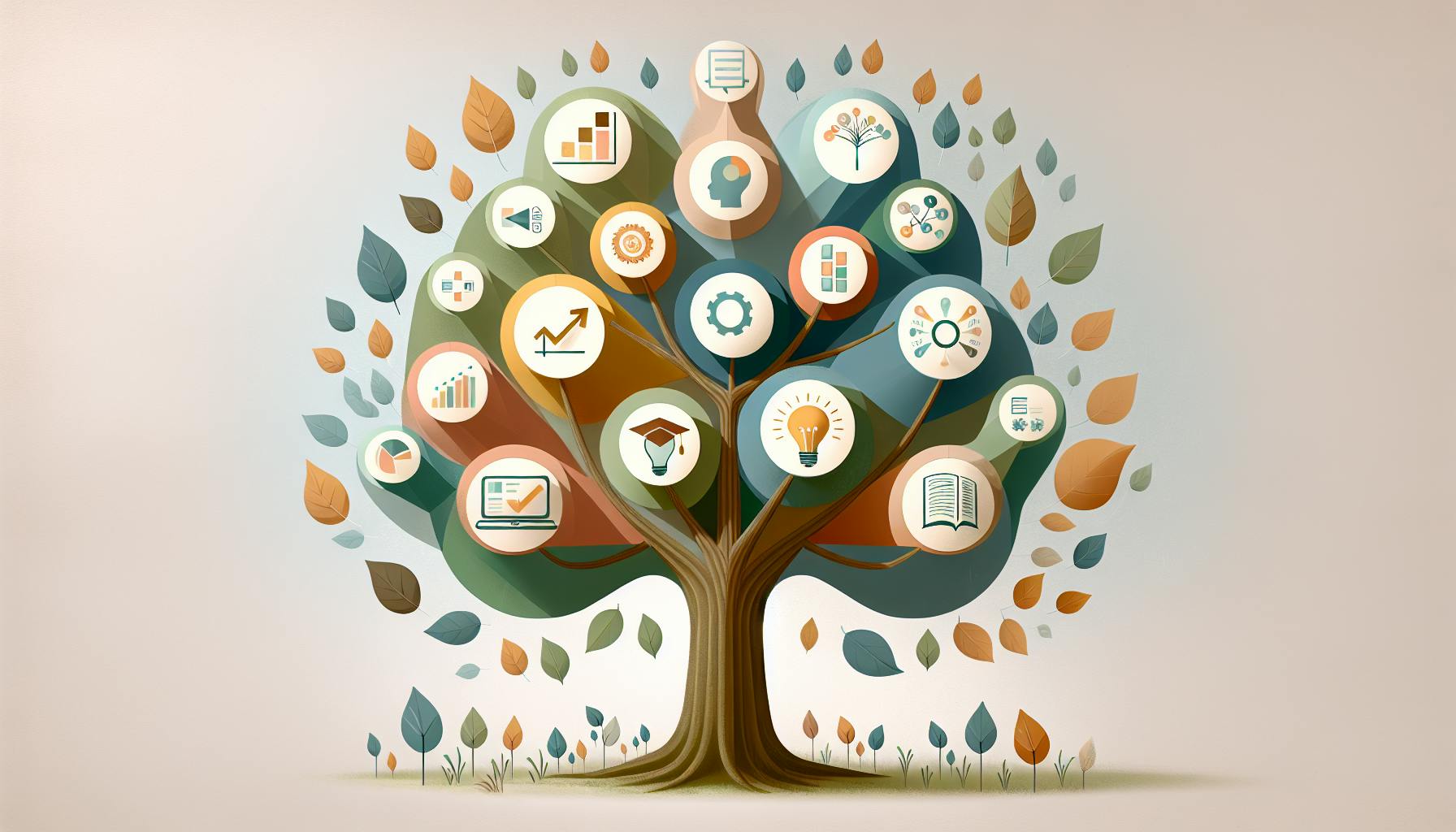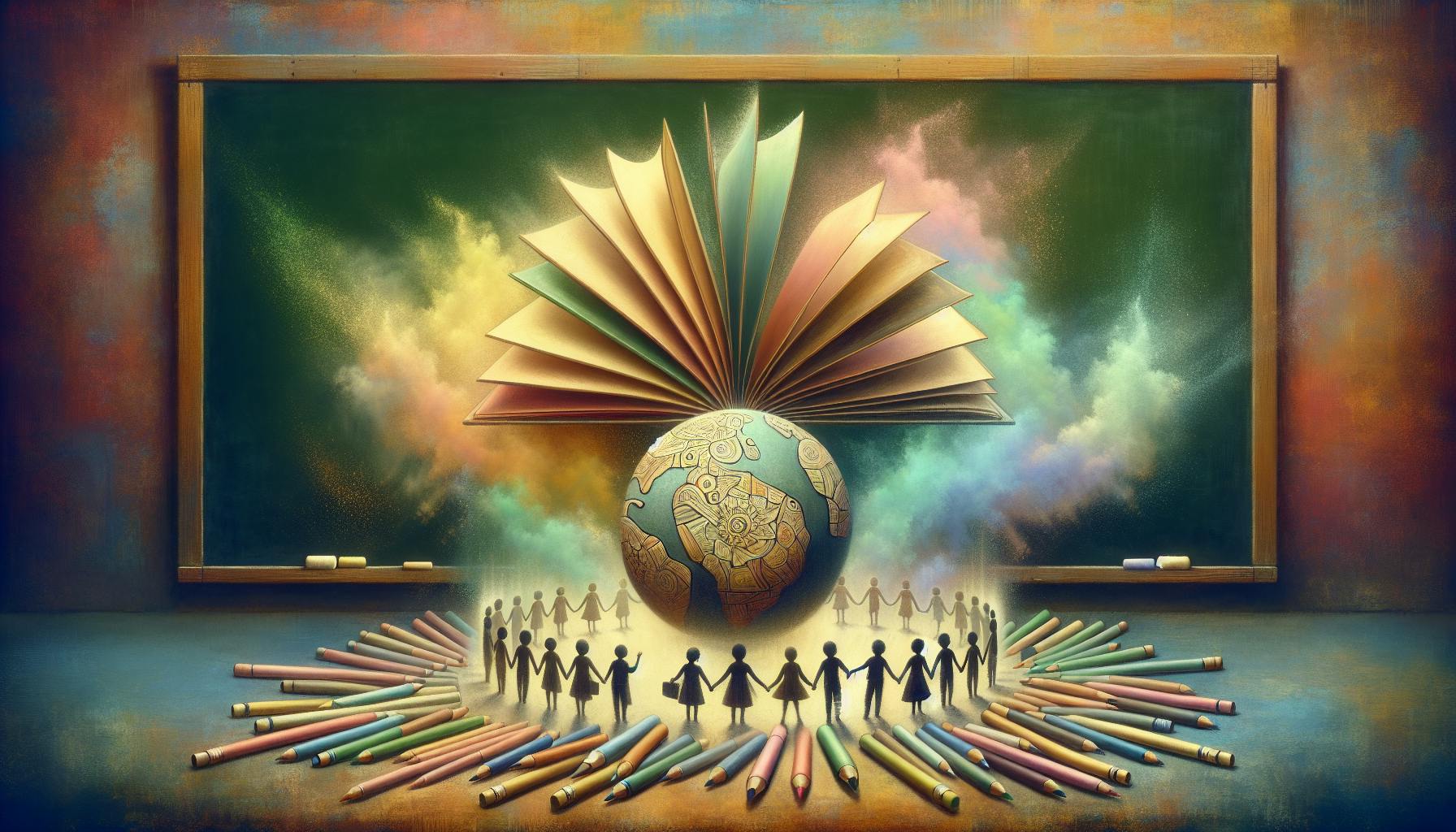Finding meaningful works of literature to engage students can be a challenge for educators.
However, Aldous Huxley's acclaimed dystopian novel, Brave New World, offers thought-provoking themes that stimulate classroom discussion.
In this review, we'll explore Brave New World's key topics, literary merit, and age-appropriateness to evaluate its potential as a teaching tool for high school students.
Introduction
Aldous Huxley's dystopian novel Brave New World explores a futuristic society built on stability and happiness, but at the cost of individuality and humanity. First published in 1932, the book's themes around science, technology, and totalitarian control remain startlingly relevant today. For teachers, Brave New World offers rich discussion around ethics, politics, psychology, and the role of art and literature in society.
About the Author
Aldous Huxley (1894-1963) was an English writer best known for his dystopian novel Brave New World, set in a genetically-engineered future society. Some of his other notable works include Point Counter Point, Eyeless in Gaza, and The Doors of Perception. Much of Huxley's inspiration for Brave New World came from his own background in science and his concerns over 20th century political ideologies and their dehumanizing effects.
Historical Context
Brave New World was published in 1932, set in a speculative future of 2540 AD. At the time, the world had just undergone the devastation of WWI, the Russian Revolution had recently occurred, and new threats were emerging in Stalin's Soviet Union and Hitler's Germany. Huxley was deeply concerned by the regimentation and conformity imposed by totalitarian ideologies of fascism and communism.
Plot Summary
The novel depicts a scientifically-engineered, emotionally sterile global society in which stability and happiness are maintained through genetic conditioning, mind-altering drugs, and strict social controls. The story follows "savage" John, born outside this society, who gets transported into it and initially admires its comforts before ultimately rejecting its lack of deeper meaning, truth, and humanity. John's outsider perspective calls attention to this society's ethical compromises in its quest for universal happiness.
What lesson does Brave New World teach?
Brave New World explores profound questions about the role of technology, individuality, and happiness in society. One of the key lessons it imparts is a warning about the danger of sacrificing freedom and humanity in pursuit of stability and pleasure.
The novel envisions a dystopian future where people are engineered and conditioned from birth to conform to a rigid social order. Their individuality is suppressed through genetic and psychological manipulation to ensure social stability. Though this system achieves its aim of eliminating problems like war and poverty, the cost is enormous. Citizens lead inauthentic, meaningless lives, medicated by the pleasure drug soma and endless distractions.
As educators, Brave New World prompts us to consider thought-provoking discussion questions with students: Is it acceptable to curtail civil liberties and personal freedoms to attain an orderly, peaceful society? What role should science and technology play in engineering social outcomes? Is a state-imposed definition of "happiness" desirable if it eliminates suffering? By reflecting on these complex questions, students can gain deeper insight into the interplay between individual rights, societal order, and quality of life.
Overall, Huxley sounds a warning about utopian engineering that seeks to determine social outcomes. Though stability has merits, imposed conformity and conditioned contentment come at too high a price. Losing the capacity for genuine emotional experience and intellectual questioning dulls our very humanity. As the Controller Mustapha Mond concludes, "The price of happiness is freedom." This takeaway prompts rich dialogue about finding balance between order and liberty in any culture.
Why is Brave New World so hard to read?
Brave New World by Aldous Huxley introduces readers to a dystopian future society built upon principles of happiness, stability, and technological control. The opening chapters detail the scientific advancements that enable this new world, which can make the book challenging to initially comprehend.
However, while the terminology seems complex at first, it serves to establish an understanding of the societal foundations. Once readers push through these early chapters, the terminology fades into the background. The remainder of the book focuses more on the characters and narrative rather than scientific explanations.
So in summary - yes, the first part of Brave New World has some dense scientific language. But this just sets the stage for the more accessible story that follows. Readers who stick with it will find the book opens up into an engaging dystopian tale relevant to modern society. The beginning simply requires some patience to establish the context before diving into the meat of Huxley's thought-provoking narrative.
What age is appropriate for Brave New World?
Brave New World explores complex themes that may be more suitable for mature teenage readers. As an educator, here are some key considerations regarding age-appropriateness:
Reading Level
The vocabulary and sentence structure in Brave New World is quite advanced. Huxley uses intricate prose and philosophically dense concepts. As such, a reading level of 14+ is appropriate. Younger readers may struggle with comprehension or miss many of the underlying themes.
Mature Content
There are several scenes in the book involving sexuality and drug use which some parents may find inappropriate for younger readers. While these scenes tie into the dystopian themes, the book does warrant a mature readership.
Complex Themes
At its core, Brave New World critiques the modern industrial world through dystopian exaggeration. It raises thought-provoking questions about individuality, consumerism, and the role of government. The ideas presented require critical thinking skills that develop more fully in adolescence.
In summary, while individual student readiness varies, an age of 14+ seems reasonable for Brave New World. The book provides ample fodder for discussion around technology, ethics, and human nature. But maturity is needed to analyze Huxley's provocative vision of the future.
sbb-itb-bb2be89
What grade level is Brave New World Aldous Huxley?
Brave New World by Aldous Huxley has a Lexile measure of 870L, indicating it is best suited for students in grades 9-10. The recommended Lexile range for students in these grades is 1050L to 1335L. This means Brave New World, while still an advanced text, is on the lower end of the complexity scale for high school freshmen and sophomores.
Some key reasons Brave New World may be well-suited for grades 9-10 include:
- Its dystopian themes and social commentary encourage critical thinking skills that develop rapidly in these grades. Students can analyze the text's messages about technology, identity, and conformity.
- While advanced, the novel's language and syntax are very approachable relative to other classics. This makes it more accessible as an introductory novel for high school literature analysis.
- The mature content and themes present opportunities to hold thoughtful discussions about ethics, individuality, sexuality, and societal norms. Such discussions are developmentally appropriate for 14-16 year old students.
So in summary, Brave New World's 870L Lexile level, combined with its themes and content, make it a great novel option for early high school grades. The text challenges 9th and 10th graders while remaining comprehensible, allowing for rich literary analysis and social commentary.
Key Themes
Technology and progress are central themes in Brave New World that connect deeply to modern society. The novel envisions a dystopian future where technological advances are used to engineer social stability, eliminating individuality and meaningful human connections. This speaks profoundly to current debates around innovations like AI and genetic engineering. Teachers can explore thought-provoking questions with students, like:
Technology and Progress
- How does the novel portray technology as a double-edged sword - simultaneously advancing and diminishing humanity?
- What ethical boundaries should society place on fields like biotech and AI? How can we harness innovation for good while avoiding unintended consequences?
- Does the novel demonstrate technological progress as an inherent threat to human individuality and freedom? Or does the problem lie in how technology is applied and governed?
Consumerism and Instant Gratification
The novel also examines a consumption and pleasure-driven society lacking deeper purpose and meaning. Citizens conform through immersion in shallow activities like sex and drugs that offer only fleeting happiness. This resonates with modern consumer culture and the growing focus on convenience over more sustainable sources of fulfillment. Teachers could explore:
- How does the novel portray the emptiness of lives centered solely around physical pleasure and instant gratification?
- In what ways does modern society also prioritize consumerism and convenience over more meaningful pursuits?
- How can we foster more purpose-driven, community-centered mindsets in the classroom?
Individuality vs. Conformity
At its heart, Brave New World cautions about the surrender of individuality to societal stability and conformity. Citizens are conditioned from birth to fit narrow predetermined roles. Non-conformity is viewed as a threat to the system. This connects to ongoing debates around individual rights vs. collective good. Questions for discussion include:
- How does the novel argue for the importance of individual self-expression, even when it challenges social norms?
- What parallels exist between the novel’s system of psychological conditioning and the many influences that shape us today?
- How can schools nurture students’ unique identities while also fostering community cohesion and shared values?
Analyzing themes like technology, consumerism, and conformity through Brave New World offers rich opportunities to engage students in meaningful debates about ethics, progress, identity, and purpose - issues central to their lives and society today. The novel’s dystopian warnings prompt vital conversations about how we can build a more just, sustainable, and humanistic world.
Classroom Discussion Topics
Technology in Education
Technology has transformed education in profound ways. Students now have access to more information and resources than ever before. However, this also comes with potential downsides.
Some key discussion prompts on this theme include:
- Has technology enhanced or hindered your ability to learn and develop critical thinking skills? Why?
- Do you feel more distracted or more engaged with academics due to technology access? Explain.
- How has technology impacted the way you interact with your peers and teachers? Has it helped or hurt your interpersonal connections?
By reflecting on these types of questions, students can thoughtfully examine if and how technology is shaping their educational experiences.
Social Media and Self-Image
Social media plays a major role in the lives of students today. This lends itself to important discussions around self-image and identity.
Some key prompts include:
- In what ways has social media negatively or positively impacted your self-image or self-esteem?
- Have you ever felt pressure to conform to certain standards of beauty or behavior because of social media? Why?
- How can we foster a healthier relationship with social media? What boundaries or habits could help?
Processing these issues can help students gain perspective and build self-awareness around social media's influence.
Balancing Individuality and Social Norms
Students often grapple with standing out versus fitting in among peers. This ties closely to the themes of individuality and conformity.
Some effective prompts include:
- Is it better to conform to norms or stand out? What are the pros and cons of each?
- When is it important to follow trends and social conventions? When is it beneficial to think independently or differently?
- How can you respectfully discuss differing worldviews and perspectives among your peers? What listening and communication skills are important?
Discussing these complex dynamics creates space for students to articulate their thoughts on individuality and peer interactions.
Lesson Plan Ideas
English/Literature
Brave New World provides thought-provoking discussions around the ethics of science, technology, government control, and personal freedoms. Here are some ideas for incorporating it into English and Literature lesson plans:
- Compare and contrast Brave New World with other dystopian novels like 1984 or Fahrenheit 451. Examine common themes around totalitarian control, loss of individuality, dangers of technology, etc.
- Analyze the novel's social commentary and messages around happiness, conformity, consumerism, and the role of art and literature. What warnings does Huxley offer regarding society's future path?
- Explore the moral dilemmas faced by characters like John, Bernard, Helmholtz, and Linda. Assign essays analyzing their motivations and whether readers should sympathize or condemn their choices.
- Examine the novel's writing style and literary techniques. Discuss use of satire, imagery, characterization, setting, plot structure, etc.
Social Studies
Brave New World touches on many concepts connected to history, psychology, sociology, economics, and political science. Discussion ideas include:
- Debate whether the society depicted offers a utopia or dystopia. Does trading individuality for happiness and social stability reflect ideals found across various political systems and ideologies?
- Analyze the biological engineering, conditioning, and social control methods used to create societal "stability" and "happiness" in the novel. How do these methods compare to propaganda tactics and social engineering attempts throughout history?
- Examine the class system in the novel and its economic implications regarding production, consumption, roles of different classes, etc. How does it differ from or relate to economic principles seen in communist, socialist, or capitalist systems?
Science and Technology
The novel provides a useful framework for discussing real scientific possibilities regarding human engineering, medicine, and technological innovation, including:
- Explore modern genetic engineering capabilities and compare to the biological engineering depicted in the novel. Discuss ethical implications regarding the creation and conditioning of life.
- Analyze the novel's take on pregnancy, birth, and child-rearing. How does this vision differ from current and past practices? Are any aspects plausible given current reproductive and parenting technology innovations?
- Examine the novel's vision of mood-altering pharmaceuticals like soma. Compare to current anti-depressant and recreational drugs. Discuss medical ethics and societal impacts regarding widespread mood drug availability and use.
Conclusion
Huxley's dystopian vision in Brave New World continues to resonate decades after its initial publication. Though some aspects may seem outdated, the core message around the dehumanizing impacts of unchecked scientific and social progress remains disturbingly relevant.
As educators, we must foster critical examination of emerging technologies and social engineering efforts. How might they restrict individual freedoms or diminish human dignity, even with the best of intentions? Are we adequately preparing students to navigate an increasingly complex world driven by science and consumerism?
More than ever, the humanities help cultivate the skills needed to analyze and question cultural norms. Literature like Brave New World prompts reflection on what truly constitutes progress, and whether efficiency and stability should override more intangible human needs. Though uncomfortable at times, these discussions are vital for developing thoughtful, compassionate citizens able to shape a more just future.
While innovation promises exciting possibilities, wisdom cautions against blind acceptance in the name of advancement. Heeding Huxley, perhaps our bravest new world awaits not through technological transformation, but inner human enlightenment.


